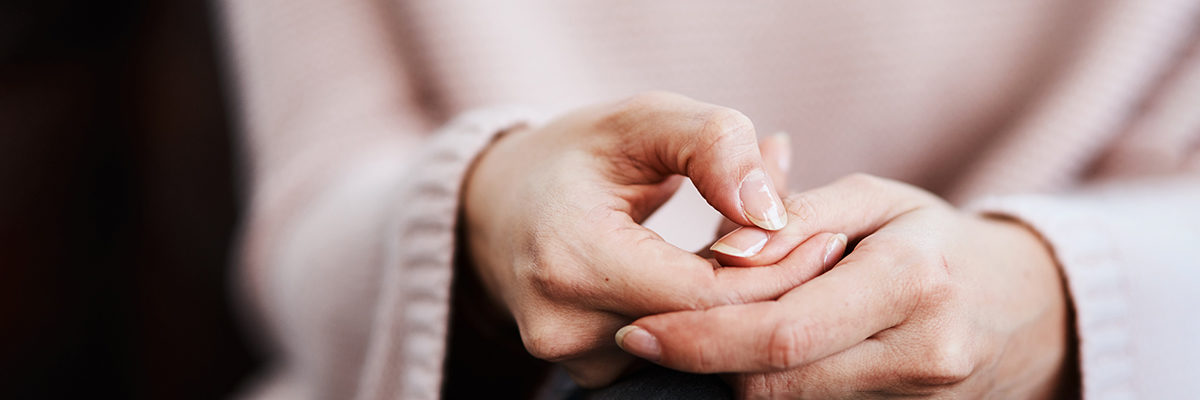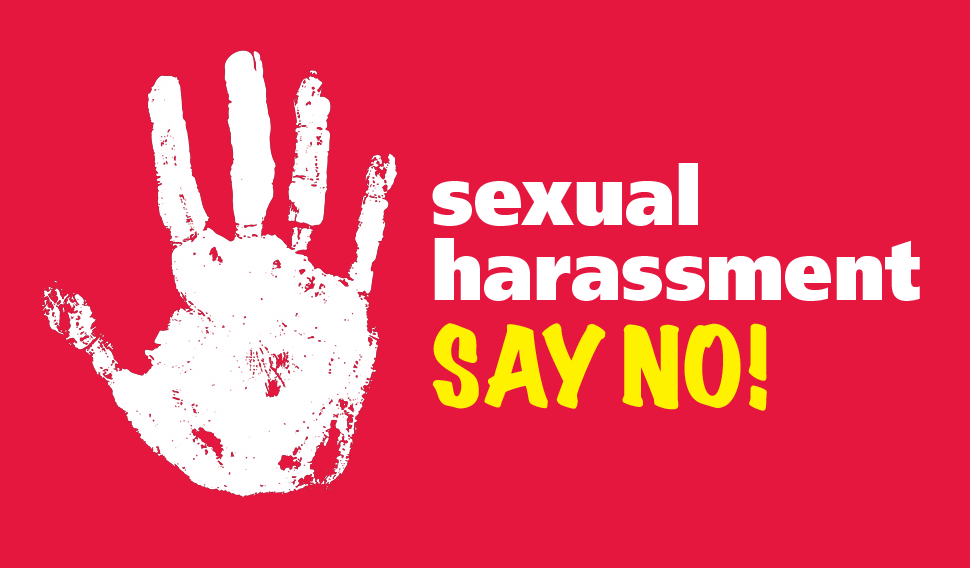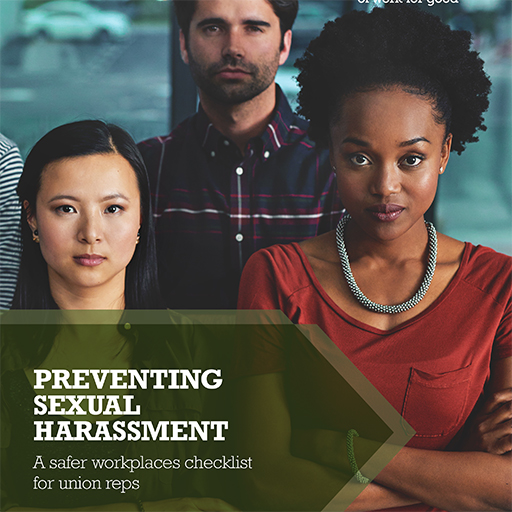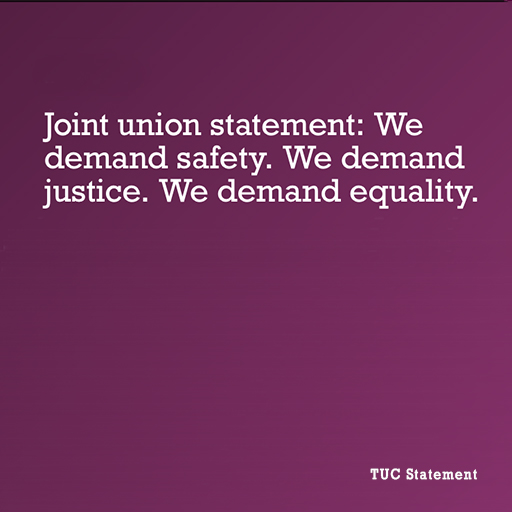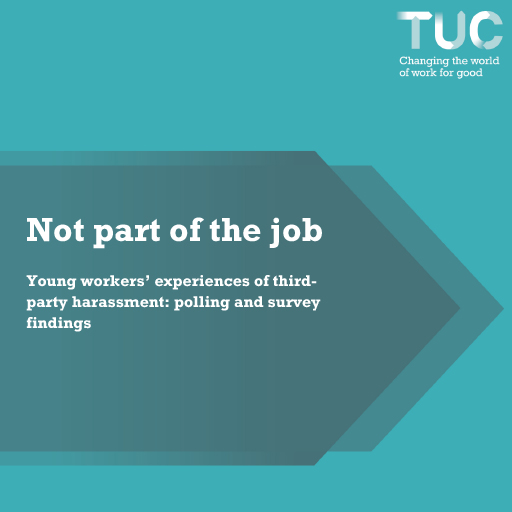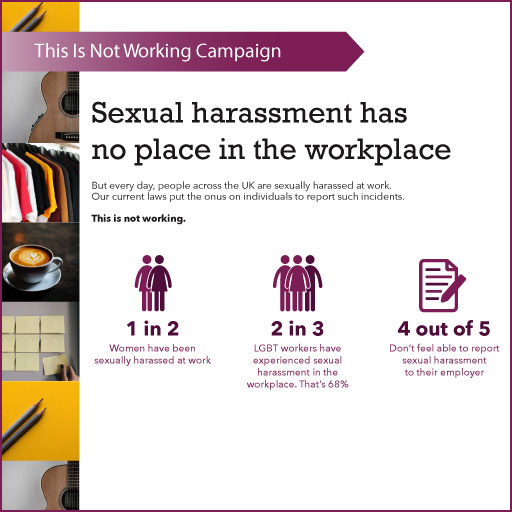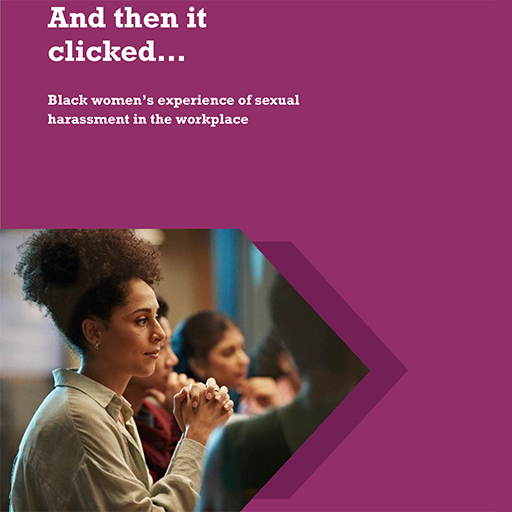Challenging the Silence on Violence
Introduction
What is domestic abuse?
Identifying domestic abuse
Domestic abuse is a workplace issue
Domestic abuse is an equality issue
What do we expect from employers?
Flexible working/reasonable adjustments
Domestic abuse is an trade union issue
What support can members expect from the NASUWT?
Support for Survivors - the UK and beyond
Introduction
Domestic abuse [1] affects women of all ages, ethnicities, classes, and backgrounds. It affects each and every one of us. [2] It is a serious crime.
Domestic abuse should not be viewed as a private family matter, but as a social matter. Violence and abuse against women and children incur untold lifelong damage, so it is imperative that each and every one of us recognise the signs of domestic abuse and offer support to survivors. [3]
“In the year ending March 2019, an estimated 2.4 million adults aged 16 to 74 years experienced domestic abuse in the last year (1.6 million women and 786,000 men).” [4]
“The cost of domestic abuse is estimated to be approximately £66bn for victims of domestic abuse in England and Wales for the year ending March 2017.” [5]
What is domestic abuse?
Domestic abuse can be described as an incident or pattern of incidents of controlling, coercive, threatening, degrading and violent behaviour, including sexual violence.
In the vast majority of cases, it is perpetrated by men against women. However, domestic violence against men is more commonplace than is often realised. The social attitude associated with being ‘a man’ often means that men suffer in silence and do not seek the help and support they need. The National Centre for Domestic Violence (NCDV) highlights the worrying statistic that approximately half of all men who experience domestic abuse did not tell anyone as opposed to 20% of women. [6]
Domestic abuse can be perpetrated by partners, ex-partners and family members and can include physical abuse (assault and physical attacks involving a range of behaviour), sexual abuse (acts which degrade and humiliate and are perpetrated against the person’s will, including rape), and mental and emotional abuse (such as threats, verbal abuse, racial abuse, homophobic/biphobic/transphobic abuse, withholding money and other types of controlling behaviour such as ‘outing’, the threat of ‘outing’, or enforced isolation from family and friends). [7]
Domestic abuse can include, but is not limited to, the following:
-
coercive control - a pattern of intimidation, degradation, isolation and control with the use or threat of physical or sexual violence;
-
psychological and/or emotional abuse;
-
physical or sexual abuse;
Domestic abuse exists as part of violence against women and girls and also includes different forms of family violence such as forced marriage, female genital mutilation and so-called ‘honour crimes’ that are perpetrated primarily by family members, often with multiple perpetrators.
While it is acknowledged that domestic abuse can affect anyone, it is still predominantly women and children who suffer at the hands of male perpetrators. This makes it a gendered form of abuse.
Identifying domestic abuse
If you suspect someone you know may be a victim of domestic abuse, the most important thing you can offer is support and an ear to listen. It is imperative that you are non-judgemental and that you approach the subject sensitively.
The survivor may not want to admit that they are in an abusive relationship and this may be hard to understand from someone looking in, but this is not a decision for you to make. If you suspect a colleague is experiencing domestic abuse, your role is to support and offer help as appropriate.
Certain behaviours/patterns of behaviour to look out for include:
-
erratic working hours: being early or late for work; is there a pattern, i.e. are Mondays always being missed?;
-
increased sick leave;
-
increasingly anxious and withdrawn;
-
poor mental health;
-
tiredness;
-
loss of interest in appearance;
-
noticeable weight gain/loss;
-
missing deadlines;
-
unwillingness to discuss home life/family plans;
-
unexplained injuries/bruises.
This is not an exhaustive list and it could be linked to many other concerns such as the menopause or poor mental health due to workplace stress.
It is a very difficult subject to broach, so it is imperative that it is dealt with sensitively and in a supportive way.
Domestic abuse is a workplace issue
In the UK, in any one year, more than one in five victims of domestic violence take time off work because of abuse and two per cent lose their jobs as a direct result of the abuse. [8]
It is important that trade unions raise the issue of domestic abuse in the workplace and make sure that employers are aware of their responsibilities.
Employers should be challenged on the assumption that domestic abuse happens outside school/college and is therefore a personal matter. Domestic abuse can have a huge impact on an individual’s working life and on their colleagues, resulting in unexplained absences, lateness and negatively impacting performance. This puts survivors’ jobs and incomes at risk. There is also the risk of the survivor being further at the mercy of their abuser, as they lose their financial independence.
It is also important that people experiencing domestic abuse feel confident to raise issues in the workplace and know where and who to go to for help and support.
Domestic abuse is an equality issue
The Equality Act 2010 [9] protects employees from discrimination in the workplace. Northern Ireland has its own standalone equality laws. [10]
Employers have to understand their legal obligations to ensure equality of opportunity for all staff and pupils.
Disabled women and men are significantly more likely to experience domestic abuse than non-disabled men and women. Their circumstances may be such that they are reliant on a care giver, who may be a partner, and this in itself means they are more vulnerable to abuse and far less likely to be in a position to report it or escape it.
Disabled people may also experience greater difficulties in accessing support due to their isolation and increased dependency on others. During the Covid pandemic, disabled people have been unable to access their usual support services, such as physiotherapy. This has contributed to their isolation and increased vulnerability with regard to domestic abuse.
Members of the LGBTI community are also at a particular risk of domestic abuse. The National Crime Survey figures (2018/19) on domestic abuse (England/Wales) highlight the LGB variances:
-
3.2% - gay men compared to 2.8% heterosexual men;
-
3.3% - bisexual men;
-
7.6% - lesbian women compared to 5.6% of heterosexual women;
-
9.1% - bisexual women.
The 2019 TUC report Sexual Harassment of LGBT People in the Workplace found shockingly high levels of sexual harassment and sexual assault. Around seven out of ten LGBT workers experienced at least one type of sexual harassment at work (68%) and almost one in eight LGBT women (12%) reported being sexually assaulted or raped at work. The two forms of abuse are related and the plight of LGBT members should not be ignored.
This toolkit addresses domestic abuse of the trans community separately as there is very little research in this area, yet what information there is available suggests members of the trans community are statistically at a significantly higher risk of domestic abuse.
Numerous factors conspire against trans people [11] with regard to suffering domestic abuse. Trans members are more likely to have suffered domestic abuse from family members for being transgender or non-conforming. This can also be said of the LGBTI community.
Trans members are more likely to suffer from rejection by families and have suffered emotional abuse in childhood and as a young adult. This early trauma may mean they are more likely to experience domestic abuse and less likely to have any family support.
Trans members are also less likely to report their abuse because:
-
they place themselves at the risk of ‘outing’ themselves with family and friends;
-
they have a fear of police attitudes; or
-
they have a lack of knowledge of where and how to access support, specifically for them.
The Office for National Statistics (ONS) (2019) data show that in the year 2018/19, the rates of domestic abuse amongst BAME [12] communities were higher than their white counterparts and rates of domestic abuse were highest amongst those who have self-identified as mixed ethnicity.
In addition to experiencing an increased chance of domestic abuse, there is evidence that BAME and migrant women’s experience of sexual harassment is often bound up with racial harassment and/or their immigration status [13] and that they are at an increased risk of suffering harassment at work.
The data show that 3.8% Asian/Asian British women, 7.1% of Black (African/Caribbean heritage) women and a huge 12.9% of ‘mixed-race’ survivors reported domestic abuse.
It is believed that under-reporting of domestic abuse is particularly acute within BAME communities. This may be due to a range of complex issues, including:
-
a history of mistrust of the police;
-
institutional racism, which includes domestic abuse agencies, healthcare professionals and social services;
-
despite being British citizens, there are women from the Windrush generation who avoid reporting their abuse for fear of deportation;
-
language barriers;
-
complex cultural differences that are often misunderstood by the authorities: for example, reporting abuse can bring shame to families and communities;
-
lack of support; and
-
insecure immigration status.
A woman facing domestic violence has to make 11 contacts with agencies before getting the help she needs. However, this rises to 17 if she is BME. (Brittain et al, 2005). [14]
There is very little Gypsy/Roma/Traveller data, but a study carried out in Wrexham in 2007 found that 81% of married Irish Traveller women and 61% of married English Gypsy women had experienced direct abuse. [15]
This is a group of people who have historically been viewed with suspicion and so may be very unwilling to disclose domestic abuse due to:
-
a history of mistrust of the police;
-
institutional racism, which includes domestic abuse agencies, healthcare professionals and social services;
-
complex cultural differences that are often misunderstood by the authorities; and
-
a lack of support.
What do we expect from employers?
Preventing and tackling domestic abuse is a key part of an employers’ duty of care towards their employees and their legal responsibility under the Health and Safety at Work etc. Act (HASAW) to ensure a safe working environment. Employers can and should do more to support survivors of domestic abuse.
It is therefore incumbent upon Workplace Representatives to ensure employer compliance.
Employers should ensure that all managers recognise that domestic abuse is a workplace, a health and safety, and an equality issue.
Domestic abuse can seriously affect absenteeism, productivity and employment prospects, so it is imperative that it is addressed within the workplace.
Without a job or income, survivors are much less likely to find a way of escaping the abusive relationship. [16]
Training on spotting the signs of domestic abuse should be provided for all those with management responsibilities.
Workplace Representatives and/or Health and Safety Representatives should be pushing for the following:
-
appropriate training for managers and staff;
-
a clear policy developed in consultation with unions;
-
awareness-raising;
-
ensuring risk assessments take the needs of survivors into account and that measures to control risks are implemented;
-
establishing recognised points of contact within the workplace;
-
improving access to appropriate support within the workplace - this includes support groups and/or counselling; and
-
providing ‘decent’ teaching/management jobs - this means offering flexible working to women, whatever their position. This may be on a temporary basis.
Employers should recognise their responsibilities under the health and safety legislation and ensure that risk assessments take the specific needs of women who have survived domestic abuse into account.
Employers will experience increased staff retention, increased loyalty from employees who feel valued and listened to, increased productivity, and an enhanced reputation.
Flexible working/reasonable adjustments
Employers should also consider measures such as adjusting work patterns and allowing flexibility in arrival or finishing times.
Other examples include:
-
early/later start and finish times;
-
flexible working (this may be as a temporary arrangement);
-
agreed paid leave;
-
time off for counselling/medical appointments;
-
a safe space to gather themselves;
-
an agreed person the survivor can approach for additional support during times of turmoil.
Members are advised to consider flexible working, using the agreed flexible working policy. Plesae see the NASUWT’s flexible working guidance for further help.
Domestic abuse is a trade union issue
Trade unions have a role to play in supporting their members during times of personal trauma and upheaval and domestic abuse is no exception. If it affects people’s working lives, then it becomes a trade union issue. It is only by forcing domestic abuse in the public forum that we break down the stigma so often associated with it and the survivors.
The NASUWT has been campaigning on this issue for many years and our workshops at conferences have always been appreciated and well attended.
Union Representatives play a key role in supporting members and helping to challenge workplace discrimination and harassment, including harassment that is linked to survivors of domestic abuse.
For those suffering abuse at home, the workplace can be a place of refuge and safety and a friendly Union Representative is often the first port of call when seeking help. Representatives can support individual members in dealing with management and seeking time off work. Unions also have a role in bargaining for better workplace policies on domestic abuse.
What support can members expect from the NASUWT?
-
Help with raising awareness of domestic abuse with employers and challenging discrimination when we suspect it is happening.
-
Representatives can provide confidential advice and support.
-
Individualised representation and support to members affected by domestic abuse.
-
Workplace training for members on domestic abuse.
-
Signposting to appropriate organisations that can help and support.
Get organised
Is the employer doing enough to support members? Is there an opportunity for the Union to hold an open information-giving session with members?
Ask for the topic to be included on the agenda of Local Association meetings or your Regional/National Conferences.
Set up a Health and Safety Committee
If two or more trade unions submit a request to the employer in writing, they must by law set up a Health nd Safety Committee within an agreed timeframe. Domestic abuse should be put on the agenda and discussed!
Women members should consider becoming Health and Safety Representatives
Our Health and Safety Rep page has lots of information about becoming active as a Health and Safety Representative and what they do.
Have a workplace domestic abuse policy
Domestic abuse is always a workplace issue. Domestic abuse incidents often spill over into the workplace. Providing a supportive workplace can make a real difference to women who are suffering domestic abuse and violence.
Representatives are encouraged to negotiate domestic abuse policies as a health, safety and welfare issue. These policies would need to follow the same consultation process as any other workplace policy.
Support for Survivors - the UK and beyond
Phone 101 for police support, but if you feel you or someone you know is in immediate danger, phone 999.
Women’s Aid - National domestic abuse helpline
www.womensaid.org.uk
Women - 0808 2000 247
Men - 0808 801 0327 (run by Respect)
Under 25s - 0808 808 4994
Women’s Aid also provides a survivor’s handbook that has practical advice and information on seeking support.
National Centre of Domestic Violence
Works in close partnership with the police, solicitors and other support agencies to help victims obtain protection. A free, fast emergency injunction service for survivors of domestic abuse and violence regardless of their financial circumstances, race, gender or sexual orientation.
0800 970 2070
TEXT NCDV to 60777
Email: [email protected]
Welsh Women’s Aid/Cymorth I Ferched Cymru
www.welshwomensaid.org.uk
0808 801 0800
Women’s Aid Scotland
www.womensaid.scot
0131 226 6606
[email protected]
Scotland’s Domestic Abuse and Forced Marriage Hotline
The helpline is used to support anyone with experience of domestic abuse or forced marriage, as well as their family members, friends, colleagues and professionals who support them. A confidential, sensitive service to anyone who calls.
www.sdafmh.org.uk
0800 027 1234 - 24-hour service.
[email protected]
Chat online facility
Women’s Aid Northern Ireland
www.womensaidni.org
[email protected]
028 9024 9041
Guernsey
Gibraltar
Royal Gibraltar Police - 200 72500 or Care Agency - 200 78528
Survivors are advised to call 199 if they feel in immediate danger of serious harm.
Asian Women’s Resource Centre
www.asianwomencentre.org.uk
Provides support services in the following languages: Bengali, Guajarati, Hindi, Hinko, Konkani, Marathi, Pashto, Patwari, Punjabi, Urdu, Farsi, Portuguese, Italian, Kurdish, Turkish and Azerbaijan. Services ensures cultural sensitivity, confidentiality and listening time in a safe, non-judgemental environment. They operate an open door policy to all women in need from all ethnicity and backgrounds.
020 8961 6549 or 020 8961 5701
Email: [email protected]
Email: [email protected]
The Traveller Movement
Support for women members of the Gypsy/Roma/Traveller community.
travellermovement.org.uk/women-and-girls
Bi Survivors Network
We provide a space where bisexual survivors of sexual and/or domestic violence can talk and find solidarity.
www.consortium.lgbt/member-directory/bi-survivors-network
Galop - Help for members of the LGBT+ community
0800 999 5428
Email: [email protected]
Women’s Aid - National domestic abuse helpline
The National Lesbian, Gay, Bisexual and Trans (LGBT) Domestic Violence Helpline provides confidential support to all members of the LGBT communities, their family, friends, and agencies supporting them.
Number of the Helpline - 0300 999 5428 or 0800 999 5428.
www.womensaid.org.uk/information-support/the-survivors-handbook/
Bright Sky Mobile App
Free to download, provides support and information to employers and anyone who may be experiencing domestic abuse.
Safe spaces during lockdown
https://uksaysnomore.org
Details of local pharmacies, offering safe spaces, phones and information.
Tools and resources for individuals and organisations to take action and get involved in making a difference.
Respect
Respect Phoneline is a confidential helpline, email and webchat service for domestic abuse perpetrators and those supporting them. We support men and women who are using abuse in same-sex or heterosexual relationships.
Call: 0808 8024040 or visit www.respectphoneline.org.uk
Footnotes
[1] All references to domestic abuse include domestic violence.
[2] It is accepted that men and members of the LGBTI community also suffer domestic abuse and will be discussed later in this document.
[3] The term ‘survivors’ is used as it describes a person who is still fighting and learning to live with, or after, the abuse. It offers a sense of mobility and is seen by many as a term of empowerment. ‘Victim’ implies a sense of helplessness and pity and a sense of being trapped, which is unhelpful.
[4] Gov.uk - Domestic Abuse Bill 2020: overarching factsheet
[5] Ibid.
[6] The 12 months up to March 2018, Crime Survey for England and Wales.
[7] Out of Sight, Out of Mind? Transgender People’s Experiences of Domestic Abuse. Scottish Transgender Alliance.
[8] TUC, Domestic Violence and the Workplace.
[9] The Equality Act 2010, England, Scotland, Wales.
[10] Northern Ireland Equality laws. Northern Ireland - Sex Discrimination Order 1976 (Amendment); Regulations (Northern Ireland) 2008; Disability Discrimination Act 1995 (NI); Section 75 of the Northern Ireland Act 1998; Sex Discrimination (Gender Reassignment) Regulations (Northern Ireland) 1999.
[11] This includes trans women and men as both groups are at an increased risk of suffering from domestic abuse.
[12] Black, Asian, minority ethnic.
[13] Sexual Harassment of LGBT People in the Workplace, TUC, April 2019.
[14] Domestic Abuse in Black, Asian and Minority Ethnic Groups. Kent, Surrey and Sussex Community Rehabilitation Company. October 2020.
[15] www.welshwomensaid.org.uk
[16] TUC (2014) Domestic Violence and the Workplace.

